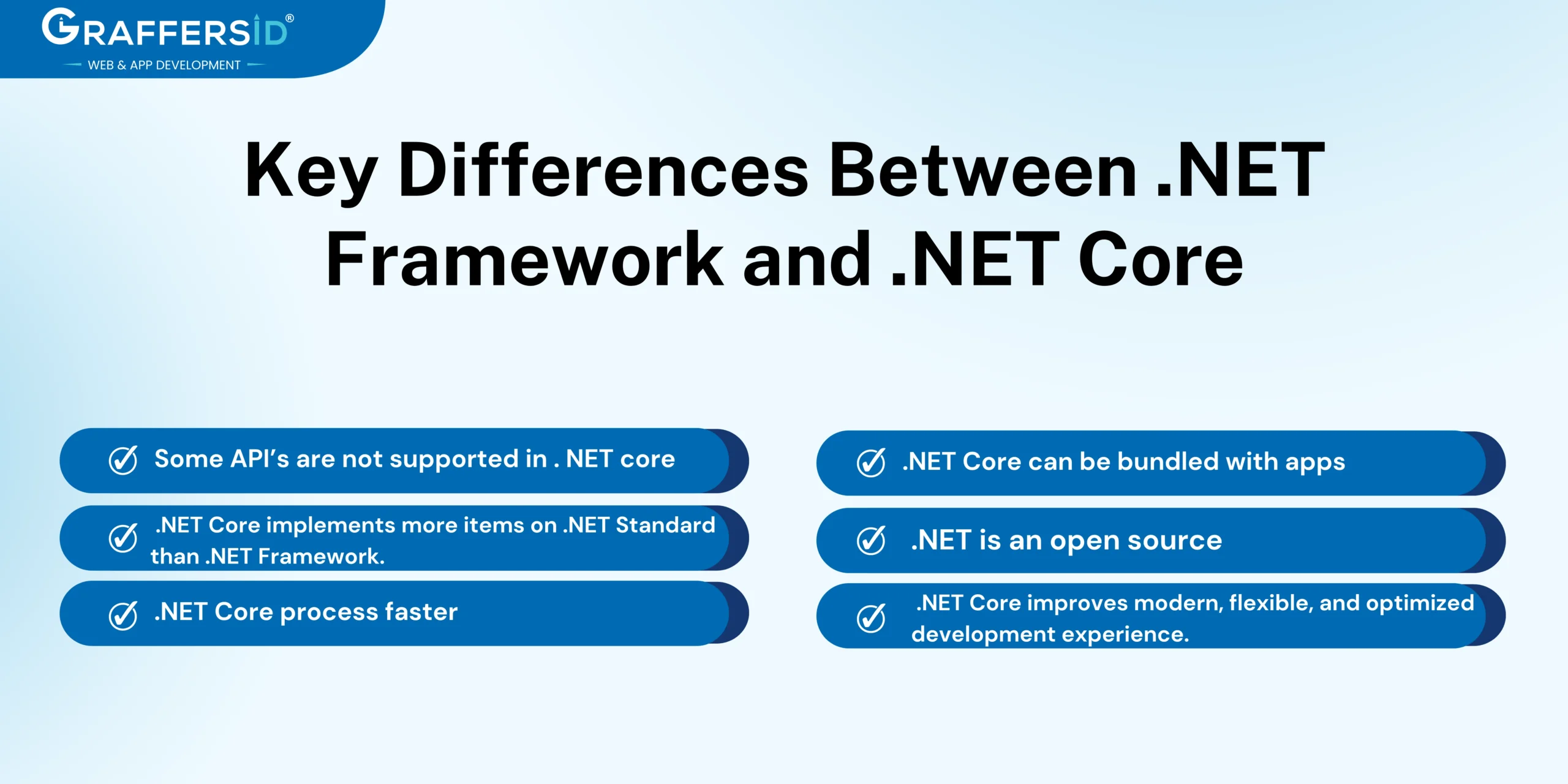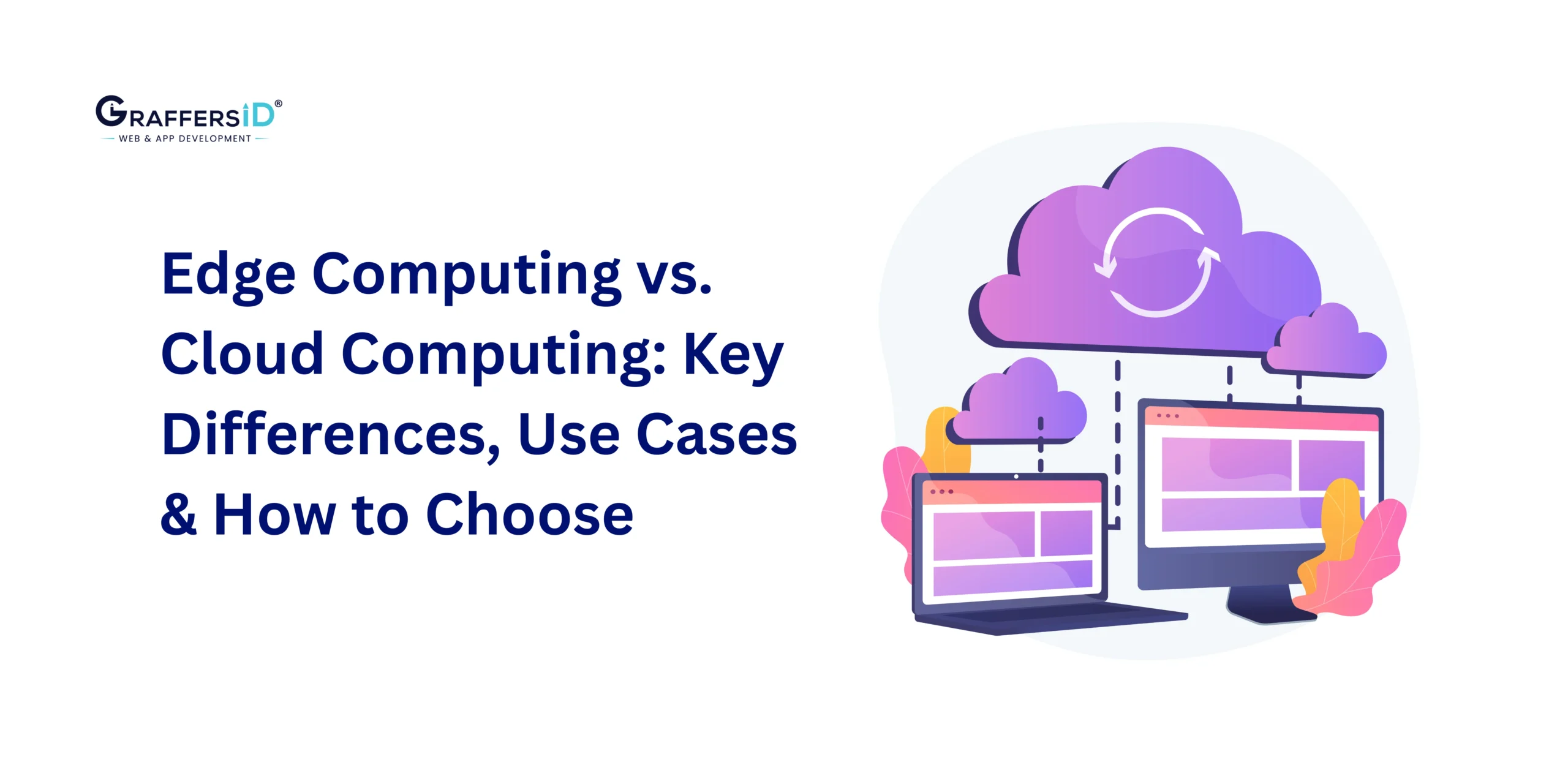Since the launch of .NET Technology in 2002, it has undergone continuous development. Microsoft has invested heavily in .NET Core, the latest iteration of the framework, leaving many businesses wondering if they should migrate from .NET framework to .NET core applications or continue using the older technology. In this article, we explore major differences and merits so you can make a decision more easily.
What is .NET Core?
In 2016, Microsoft introduced .NET Core as an open-source alternative to .NET. Both platforms have several APIs and functions in common, yet the new framework was designed to tackle the shortcomings of the previous framework.
Some key features of .NET Core include:
- Cross-platform support: It is possible to run applications on Windows together with MacOS and Linux without any changes to the code in contrast to the .NET Framework which only works on Windows.
- Open-source: The community supports the platform, which is available free of charge.
- Side-by-side installations: Several versions may be utilized on one system without overlapping concerns.
- Higher performance: Faster than the .NET Framework with a smaller footprint.
- Flexible deployment: Can be included in containers using Docker without relying on a system-wide installation.
The platform is actively developed by Microsoft and the community. New features and performance enhancements are added with each major release.
Learn More: Advantages and Disadvantages of using .Net
Key Differences Between .NET Framework and .NET Core

Despite .NET Core having similar concepts and APIs as the .NET Framework it exhibits many significant disparities that are worth delving into. Upon learning about .NET Core I had numerous queries about its difference from the established .NET Framework I knew.
APIs
.NET Core contains a large subset of the APIs from .NET Framework, providing a familiar .NET environment for developers. However, some APIs are still unsupported or a work in progress, like Windows Forms and WPF. These unsupported APIs need to be ported over by developers wanting to migrate – so be prepared for some tweaking. I remember feeling disappointed when I couldn’t quickly migrate my Windows Forms app!
.NET Standard
This specification catalogs the APIs that should work across all .NET implementations. Think of it like a checklist. .NET Core does a better job implementing more items on the .NET Standard checklist compared to .NET Framework. This means more uniformity for developers working across platforms.
Deployment
One big perk of .NET Core is that it can be bundled with apps in a single package. No need for installing convoluted system-wide frameworks. This makes deployment so much easier and flexible without all those dependencies. I wish I had this back when I was deploying desktop apps and fighting .NET Framework installations!
Performance
In all the hype about new tech, we expect performance gains. Well, the good news is .NET Core delivers on this in many cases with faster processing times compared to .NET Framework. The improved just-in-time (JIT) compiler and having fewer automatic libraries loaded add up. I was pretty amazed when I tested my first .NET Core application!
Open-Source
Anyone can view, modify, and contribute to .NET Core source code. The .NET Framework is closed source.
So, in summary, the two .NET options share a lot of DNA but have some distinct differences under the hood. .NET Core really aims to improve on some key shortcomings for a modern, flexible, and optimized development experience.
Why Migrate to .NET Core?
Migrating existing .NET Framework apps to .NET Core offers several benefits:
Cross-Platform Support
One of the biggest advantages of .NET Core is it enables the creation of apps for multiple operating systems including Windows, MacOS, and Linux. This allows supporting more users without needing to build separate native apps for each platform.
Improved Performance
In many cases, benchmarks show .NET Core performs faster than the .NET Framework. This leads to lower hosting costs and a better user experience. The performance gains result from code optimizations and a reduced number of libraries loaded automatically.
Containerization
.NET Core makes it easier to deploy apps using Linux containers and Docker. Containerization facilitates modern DevOps practices like continuous integration and deployment. Containers ensure apps work across environments.
Future Innovation
Microsoft is focused on evolving .NET Core as part of its commitment to open-source and cross-platform development. New innovations will appear in .NET Core first rather than the .NET Framework. To benefit from future capabilities, migrating makes sense.
Community Driven
Because .NET Core is open source, a vibrant community contributes to its development. Bugs can be fixed quicker and new features introduced based on the needs of real developers. The open model results in rapid evolution.
For most workloads, .NET Core delivers better performance, cross-platform capabilities and modern deployment practices. Over time, it will far surpass the .NET Framework.
Read Also: .Net Core vs Node Js
Considerations When Migrating
However, there are some considerations before migrating an existing .NET Framework codebase:
Application Size
Because .NET Core only implements part of the .NET Framework and .NET Standard APIs, it may take time to port unsupported APIs used by very large apps. Small to mid-sized apps can likely migrate faster.
UI Framework Compatibility
Windows Forms and WPF are not fully supported on .NET Core, only through Windows Compatibility Packs. Alternatives like Xamarin or web UIs must be used for cross-platform UIs. This likely requires UI code changes.
Third-Party Library Support
Many popular libraries like Newtonsoft.Json work on both versions, but any third-party .NET Framework libraries used need to be evaluated for .NET Core support to avoid breaking changes.
Development Resources
Developer experience migrating to .NET Core is not as smooth as staying on the .NET Framework. The tooling support and documentation resources are still maturing for .NET Core. More learning may be required.
The level of effort to migrate depends on the application’s complexity and how aligned the existing code is with the .NET Standard. Testing is critical to ensure full functionality.
Migration Approaches
When looking to modernize those aging .NET Framework apps, companies have a few options on the table. I know when we had to plan our migration strategy, we struggled to weigh the pros and cons of each approach.
Incremental Migration
This option involves slowly and steadily migrating pieces of an application over to .NET Core in phases. For us, this was the obvious path forward for our enterprise app – too risky to rewrite everything at once! By tackling it in chunks, we were able to realize some benefits early without jeopardizing day-to-day operations. The components still interacted with old .NET Framework elements through standard APIs during the transition period.
Hybrid Migration
Other companies opt to keep certain components on the .NET Framework while migrating other newer, less complex modules to .NET Core first. This hybrid model gives some flexibility to focus migration efforts where it makes the most sense. For apps with tricky integration needs, maintaining that legacy Foundation linkage has its perks while still revamping parts of the stack.
Parallel Development
Some IT leaders don’t want to touch those aging .NET Framework apps and instead start fresh – building a parallel .NET Core version of modules alongside the old system. This “new and old” setup can work well to prove functionality on Core before switching integration points. Of course, staffing parallel teams do require a larger budget!
The “best” migration path really depends on the application architecture, risk tolerance, and resources you can throw at the modernization project. For smaller apps, going all in on .NET Core makes sense, while bigger systems usually take a more incremental turn-by-turn navigation.
New Capabilities
Beyond the benefits highlighted so far, migrating to .NET Core unlocks new capabilities not feasible with .NET Framework apps:
Cloud Native Development
.NET Core is optimized for containers and serverless computing using AWS Lambda or Azure Functions. These cloud-native patterns enable autoscaling and higher efficiency.
Blazor for Web UIs
Blazor is a new framework for building interactive web UIs using C# instead of JavaScript. It offers a robust alternative to JavaScript frameworks.
Single File Publish
.NET Core apps can be published as a single executable file containing all application code and dependencies. This simplifies distribution to end users.
Machine Learning Integration
ML.NET allows .NET developers to integrate machine learning models into apps without learning new languages. This facilitates AI application development.
Windows Terminal Support
The new Windows Terminal provides multiple tab support, Unicode and emoji, rich text formatting, and GPU acceleration. These features enhance the terminal experience for .NET Core console apps.
Read Also: Best Frontend Frameworks for Web Development
The Future is .NET Core
Microsoft will continue innovating with .NET Core while the .NET Framework remains in maintenance mode. All new capabilities will appear in .NET Core first. As the platform matures with more real-world usage, the available tooling, libraries, and documentation will improve.
For most workloads, especially new development, .NET Core is the best choice moving forward. It delivers on Microsoft’s vision of .NET as a cross-platform framework powering cloud-connected, AI-enabled apps. Migrating offers future-proofing for innovation yet to come.
Conclusion
.NET Core delivers key benefits like cross-platform support, better performance, and modern deployment practices compared to the legacy .NET Framework. For organizations using .NET, migrating offers access to new capabilities and the latest innovations as Microsoft prioritizes .NET Core development.
Small, self-contained apps are the best candidates for wholesale migration to .NET Core. For large, complex apps an incremental migration strategy may make the most sense. Testing is critical either way to ensure functionality parity after migration.
Considering your team’s skills, application architecture and business drivers will determine the right migration approach. GraffersID can help with some upfront planning, we can start benefiting you from .NET Core without excessive risk or disruption. The future-proof design will pay long-term dividends. Contact us now to know more!



